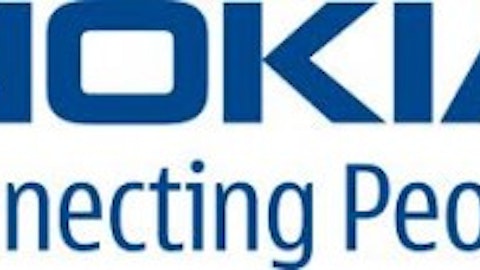Michael Dell and and Silver Lake, a specialist firm focused on private technology company investments, recently struck a deal to buy publicly traded Dell Inc. (NASDAQ:DELL) and take it private. Seems the founder is attempting a turnaround and doesn’t want the company to be burdened by analysts, shareholders, and the heartbreak of being a public company.
Please Release Me, Let Me Go
If the leveraged buyout is approved, Dell stockholders get $13.65 a share, a 25% premium over the stock price before the deal was announced about a month ago. The transaction is valued at $24.4 billion, with a premium of approximately 35% over Dell’s enterprise value as of Jan. 11, 2013. The buyers will acquire for cash all of the outstanding shares of Dell not held by Mr. Dell and certain other members of management.
While the price appears fair on the surface, it is a steep discount to what the stock was trading at the end of 2007. Mr. Dell, who with a 14% stake is the company’s biggest shareholder, is contributing his equity and an undisclosed piece of his $16 billion fortune to help finance the sale. The deal is expected to consummate by the end of July, when Dell, the company, will stop publicly trading.

Source: www.finviz.com
When Does a Modest Premium Over Market Price Smell Like a Rat?
If I was a current shareholder in Dell, I would be upset (actually more than just upset, but this is a G-rated blog). Assuming I owned shares all along, believing that Michael Dell’s 2007 return to CEO and his “Dell 2.0” turnaround strategy was going to return the company to prominence, I would feel betrayed.
I also smell a rat. Officially, we are told that Michael Dell feels his company is simply getting no respect from analysts and institutions. In frustration, he is going to give shareholders an opportunity to get out at a slight premium and be done with the company. What I see is an attempt to initiate a “Dell 3.0” without any upside to current shareholders.
Granted, it may take more than a couple of years for the executive to turn the company around — but I would sure like to know what his new strategy will be. It has to be interesting, or an investment firm– with $14 billion of assets under management and a portfolio of companies that generates about $30 billion in revenues a year (and made up of what I am sure are pretty smart guys) — wouldn’t be investing as much money as it is.
New Chapter, Fewer Players
For his part, Michael Dell said that “this transaction will open an exciting new chapter for Dell, our customers and team members,” while continuing “the execution of our long-term strategy and focus on delivering best-in-class solution.” Dell’s shareholders will not participate in this new endeavor because Dell, as a private entity, will be moving forward on its own.
Even Microsoft Corporation (NASDAQ:MSFT) is putting skin in the game; albeit as $2 billion in debt, not equity. The company can certainly afford it. They had $68.3 in cash and short-term securities at year end, the company generates about $2 billion in cash each month.
Why is Microsoft willing to make this committment? Some industry experts believe the company is using the loan as leverage to prevent Dell from further using Linux-based software (an open-source operating system that competes with Microsoft’s Windows) in its enterprise servers, the high-end computers it sells to businesses.
Microsoft is increasingly becoming an enterprise-focused company, and that is where the company is betting on its growth. For the first time, the company’s Server and Tools division generated more than its Windows division in the company’s most recently ended fiscal year end ($18.7 billion in revenue for S&T compared to $18.4 billion for Windows). Server and Tools sells server versions of Windows, database software, Azure cloud services, software-development tools, system-management products and enterprise services.
If Microsoft can persuade Dell to include enterprise services like its data center, IT services, and customer relationship management software in Dell’s hardware, Microsoft’s $2 billion investment could become an interesting move. Suddenly, the investment gives Microsoft an increased presence in companies that are quickly shifting to adopt cloud services like.
Meanwhile, Dell’s current investors get a modest premium over market value, with no idea what the company is going to do in the next three to five years, and no skin in the upside, if any. Somehow, that doesn’t seem fair. “Dell 3.0” will be up to Michael Dell et al, and they will be the only ones who benefit from it.
So much for maximizing current shareholder value. Institutional investors who currently hold the company’s stock are starting to band together and insist on a higher premium. That may provide salvation for the individual investors who still believed in Michael Dell.
The article What the Dell is Going on? originally appeared on Fool.com and is written by Mark Walker.
Copyright © 1995 – 2013 The Motley Fool, LLC. All rights reserved. The Motley Fool has a disclosure policy.





